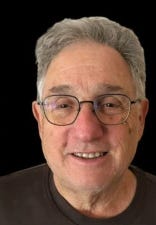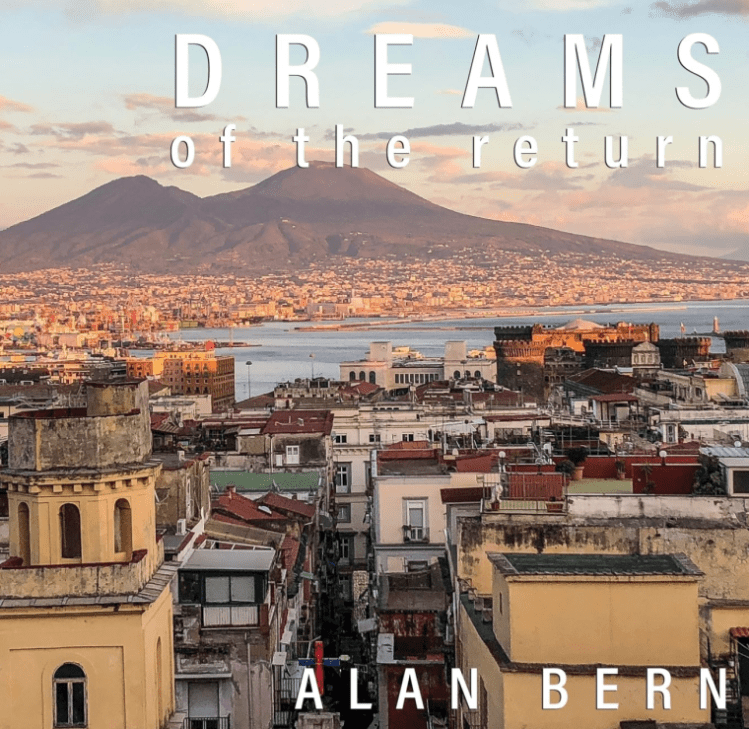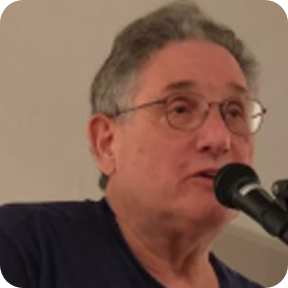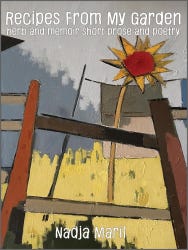An Interview with Alan Bern about his book, Dreams of the Return
The Art of Fusing Multiple languages and Mediums
What happens when a writer combines memoir, original photographs, original poetry, and favorite poems translated from a different language?
You get an interesting melage of experiences each time you turn the page. For Alan Bern, his fascination with Italian culture and language and his experiences is now shared in his newest book, Dreams of the Return.
Alan is a fellow member of the Old Scratch Press Short form and Poetry collective. Curious to find out more about Alan’s writing process, I interviewed him via email. Below are posted my questions and his responses.
N.M. In this your fifth published book Dreams of the Return breaks many traditional conventions. In one volume the reader will find memoir, poetry, Italian poetry that you have translated along with your original photography. How did this particular manuscript evolve?? Was there a specific moment you remember that propelled your forward?
A.B. The last full-length book I published before Dreams of the Return was IN THE PACE OF THE PATH, that told the story of being born in Berkeley, California, growing up there, and still living in the same neighborhood today. Although I’ve lived 95% of my life in a 4-square block area, I was fortunate to have a parent (my Dad) be an academic,who took sabbatical leaves. When I was 15-16, we lived in Napoli, Italia, for a year. I began to feel my individual young adult identity that year and fell in love with Napoli and Italia, the language, food, people, and culture. Unlike Berkeley, Napoli is a large and wild City, not a small university town.
N.M. 1965-66, your family moved to Italy when you were a child. Over the years, how much time have you spent in Italy. When are you visiting again?
A.B. I was actually a teen, and I felt my first true individual power in learning Italian and attending liceo (high school) there. After that and multiple times throughout my adult life I have spent up to a number of weeks at a time visiting different parts of Italia. I favor Napoli, Sicilia, and the South, but love other areas as well: Roma, Milano, Firenze are favorites, too. I hope to visit again in the next few years.
N.M. Do you imagine you are writing for a specific audience?
A.B. Many non-Italian Americans love Italia as I do, and they appreciate reading about the country and its people. Some Italians have been intrigued by an American devotee’s views of their country, too.
N.M. In the artistic process, what comes first? Documenting something you see with your camera or reliving the experience of describing with words what you see and feel?
A.B. Combining images and words is a vital part of my daily art practice, and this book falls into that process. I often start from image and travel to words, but I also go in the reverse direction as well.
N.M: Is there a favorite poem in the collection you’d like to share?
Yes, my hymn to Napoli and my Neapolitan friend Marco, See Naples and Die:
ˆNapoli is so beautiful that once one has seen it, one can die.”
49
Vedi Napoli e poi muori:
Alan Bern
See Naples and Die
Vedi Napoli e poi muori
Marco, more pie, more pizza pie!
Stai ‘nguaiato!
The oven’s not even hot.
Ué!
Blessèd Mother, Gesù Cristo!
he’s a know-nothing,
Well, he does have idioms,
and when the GI asks him
how he’s doing,
he comes back with
tengo a uallera, thank you,
two long wallets
ready to rupture.
Sfaccim’, he says
he has sperm in his hand towel,
and doesn’t know
“whether” to put it.
What a fuckin’ bother!
But in this mess
of traffic, here & there,
cars on every sidewalk,
he is a sprinting quail,
as the good Napolitani say
è ‘nu brav’ guaglion’!
a directed messenger
carrying fresh fish filets
wrapped tightly
in yesterday’s news
and running
slapping both feet
a lit cigarette
on his lower lip
N.M. Fluent in English and Italian, you primarily write in English. Can you share your feelings about the two languages and what you feel are the strengths and weaknesses of each language in communicating certain stories and emotions?
A.B. I wrote in Italian soon after my year there, but no longer. I remain fluent and can even tell (bad) jokes in Italian, but I can tell most of my narrative stories and write poems much more fluently in English.
N.M. If you could spend some time with a favorite author, who would it be and why?
A.B. My favorite author of all is Dante, and I have spent over 50 years reading and translating him. My printing and illustrating colleague, artist/printer Robert Woods and I have printed and published multiple Dante broadsides for 50 years; for example, recent ones, printed digitally — https://www.linesandfaces.com/divine-comedy
I am fascinated with poets who produce longer, epical poems and the Divine Comedy is a true masterpiece in this vein. His travel through the three realms — Hell, Purgatory, and Paradise – juat about covers it all, in my opinion.
N.M. Do you have any favorite routines associated with your writing process?
A.B. I often write in the morning and do better after or with coffee.
N.M. What books are you currently reading?
A.B. Tracing Bodies, moving, fabulous contemporary poems by my OSP colleague, Virginia Watts and the Collected Poems of Langston Hughes, a vital heir to Walt Whitman, both major and heroic American writers.
N.M. Did you work alone or did you rely on some feedback from others?
A.B. I often get feedback and advice from my wife and my Lines & Faces colleague, Robert Woods, and from my poetry-writing group.
N.M. If you could give advice to your younger self, what would you want to tell them?
A.B. Always keep on writing and start to submit for publication.
N.M. What are you currently working on and why is it important to you?
A.B. I have a chapbook in mind with a variety of mostly recent poems without correspondence to any of my photo-images. I love to connect images and words, and I also like to have my poems and stories stand on their own, a good mixture of my approaches to writing work. In this chapbook I look back on some important relationships, both romantic and familial. These remembrances are simultaneously soothing and evocative for me, the writer, and I hope for the audience as well.
N.M. Thank you Alan. And readers… if you’d like to hear Alan read from his book, Dreams of the Return along with readings by his colleagues Anthony Doyle and Virginia Watts ( who I’ve also interviewed for this blog) you will not want to miss Saturday, October 25th online Three Books. Three Voices. An Afternoon of Discovery. With Alan Bern, Anthony Doyle, and Virginia Watts https://us06web.zoom.us/meeting/register/eb9oTKQHQ5Wis5ToghjnXQ#/registration
Thank you for reading this week’s post. To read more blog posts, stories and essays —-sign up for FREE to receive an email each time I publish and follow me on Medium, Substack or WordPress. Check out my chapbook of flash memoir and poetry below.
Thank you for supporting human writers.





